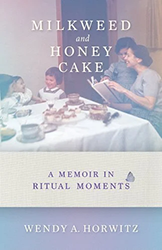Today the phrase “Jewish journey” is practically a synonym for a personal account of the narrator’s discovery or recovery of Judaism. For Jeremy Leigh, a guide and teacher of Jewish history born in London but now living in Jerusalem, the phrase is broader. For him Jewish journeys are Jewish history, from the day Abraham left his father’s house to contemporary airports and all points between.
Leigh begins with his feeling that he comes from a “non-place” where Jewish history hasn’t happened. In visiting sites with Jewish connections, looking for his place there — York, England, for instance, where a massacre of Jews took place in 1190 — he mines history and literature to give meaning to places where relevant Jewish connections are long past. The strength of Leigh’s journeys lies in the texts he selects — the Berlin of the Enlightenment that welcomes Solomon Maimon, a young Pole seeking education, as opposed to the ugly 20th century Berlin.
Jewish Journeys is organized around Leigh’s thoughts after years of teaching and guiding tours. He occasionally muses on contemporary Jewish travel: Do Jews visit Masada to consider whether the zealotry of its holdouts is an inspirational example or to see the sun rise over Jordan? Does a satirical sketch on Israeli television about Holocaust package tours reflect the ambiguity of a trip to Poland? These questions suggest that Leigh might have more to offer than the pointed observations and excellent selected passages of Jewish Journeys. A volume in the “Armchair Traveller” series of travel literature. Index.
Maron L. Waxman, retired editorial director, special projects, at the American Museum of Natural History, was also an editorial director at HarperCollins and Book-of-the-Month Club.





